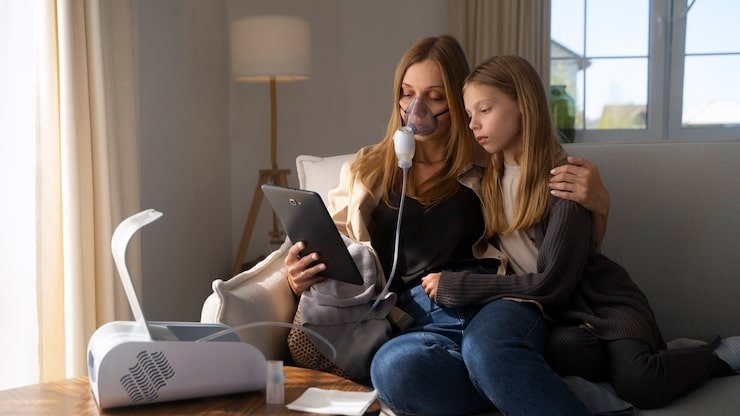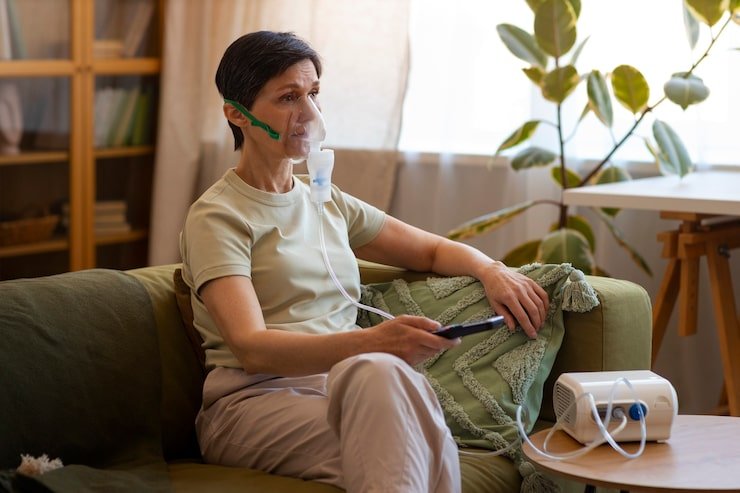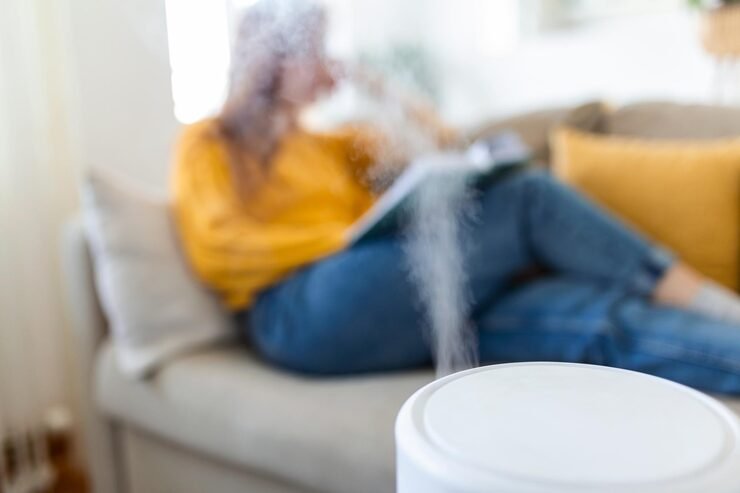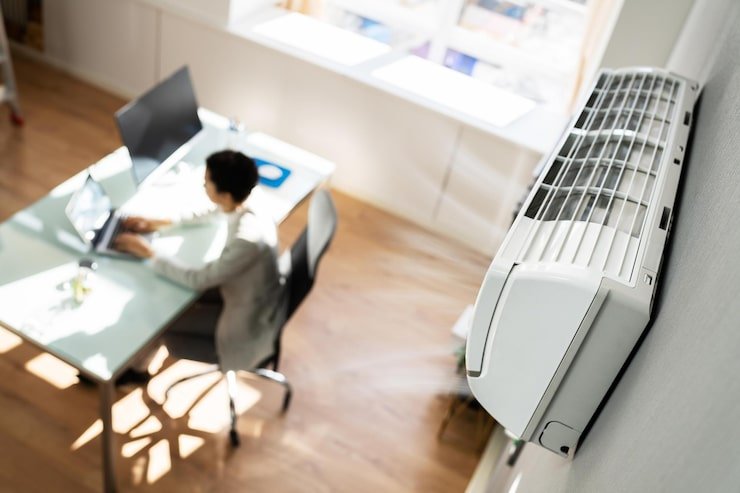How Air Quality Testing Can Protect Your Family’s Health
- admin323029
- Blog

The air inside your home might seem clean—but is it really? Many families in Melrose, especially around Lynn Fells Parkway, unknowingly breathe in pollutants that can cause long-term health issues. That’s where Air Quality Testing becomes not just helpful, but essential.
Whether you’re a homeowner, renter, or property manager, understanding what’s floating in your indoor air can help you make decisions that protect your family’s well-being. From allergens and mold to volatile organic compounds (VOCs), indoor air pollutants are more common than you might think.
Let’s break down how Air Quality Testing works and why it’s a smart investment in your family’s health—and your peace of mind.
What Is Air Quality Testing?
Air Quality Testing is the process of analyzing the air in your indoor environment to detect pollutants and contaminants. This may include:
-
Mold spores
-
Dust mites
-
Pet dander
-
Carbon monoxide
-
Radon gas
-
VOCs from cleaning products or paint
Professional testing involves using specialized equipment to sample the air and identify these toxins. The results help determine whether the levels are safe—or if immediate action is needed.
Why Indoor Air Quality Matters
According to the EPA, indoor air can be 2 to 5 times more polluted than outdoor air. That’s a huge concern, especially for people with asthma, allergies, or weakened immune systems. Children and the elderly are particularly vulnerable.
Bad air quality can lead to:
-
Chronic respiratory problems
-
Fatigue and headaches
-
Sinus infections
-
Irritated eyes and throat
-
Even long-term neurological damage in severe cases
Living near urban roads like Lynn Fells Parkway can also increase your exposure to traffic-related pollutants that may enter your home. This is why Air Quality Testing is especially valuable for Melrose-area families.
H2: How Air Quality Testing Can Protect Your Family’s Health
Routine Air Quality Testing helps identify hidden threats before they escalate into major health or home issues. Here’s how it directly benefits your household:
1. Detects Hidden Mold Growth
Mold doesn’t always grow in plain sight. It often thrives behind walls, under floors, or in basements. Testing helps catch it early—before it triggers asthma or damages your home’s structure.
2. Improves Sleep Quality
Poor air can affect how well you breathe at night. By removing allergens and irritants, you’ll notice better rest and more energy in the morning.
3. Identifies Carbon Monoxide Risks
CO is a silent killer—odorless, tasteless, and invisible. Air Quality Testing can ensure your family isn’t unknowingly exposed to this dangerous gas.
4. Protects Children and Seniors
Younger and older family members are more sensitive to indoor pollutants. Clean air is essential to support growing lungs and aging bodies.
5. Enhances Overall Wellness
Better air can improve mental clarity, reduce headaches, and help everyone in your home feel more comfortable. It’s a boost to daily life.
When Should You Schedule Air Quality Testing?
You don’t have to wait for symptoms. Schedule Air Quality Testing if:
-
You’ve moved into a new home
-
You live near heavy traffic or construction (like along Lynn Fells Parkway)
-
Someone in your home has chronic respiratory issues
-
You’ve had recent water damage (a mold risk)
-
You smell musty or chemical-like odors
Routine testing every 1–2 years is a great preventive measure, especially in older homes or homes with a history of mold or leaks.
DIY vs Professional Air Quality Testing
While DIY air quality monitors exist, they have limited accuracy and can’t test for all pollutants. They’re good for basic tracking, but not ideal for comprehensive protection.
Professional services offer:
-
Advanced equipment
-
Detailed lab analysis
-
Custom recommendations
-
Peace of mind
If you live in Melrose or along Lynn Fells Parkway, consider hiring a local, certified expert to ensure your family is breathing safe, clean air.
Steps You Can Take After Air Quality Testing
Once your home is tested, the results will guide your next actions. Some common solutions include:
-
Installing HEPA air purifiers
-
Improving ventilation
-
Sealing leaks and cracks
-
Removing mold-infested materials
-
Using non-toxic cleaning products
Many of these changes are affordable and easy to implement—and they make a big difference in the long run.
External Resources for Further Learning
Here are some trusted sources to deepen your understanding:
-
EPA: Guide to Indoor Air Quality
-
American Lung Association
-
CDC on Mold and Health
And don’t forget to explore our own Resources Page for more guides and local recommendations.
Final Thoughts
Clean indoor air is just as important as clean water or a sturdy roof. If you’ve never considered Air Quality Testing before, now’s the time to prioritize it—especially if you’re in the Melrose area or along Lynn Fells Parkway, where traffic and moisture levels may contribute to poor air.
Testing gives you the power to make smart, health-first decisions. And it’s one of the simplest, most proactive ways to protect your loved ones every day.
Ready to Breathe Easier?
Our team offers professional Air Quality Testing tailored for homes in Melrose and nearby areas. Schedule your inspection today and give your family the gift of clean, breathable air.
Book Your Air Quality Test Now →
FAQs About Air Quality Testing
1. What is Air Quality Testing and why is it important?
Air Quality Testing analyzes indoor air to detect pollutants like mold, allergens, and VOCs. It’s important for preventing health problems and improving indoor comfort.
2. How often should I get Air Quality Testing done?
It’s recommended to test every 1–2 years, or immediately after moving, water damage, or respiratory health issues. For homes near Lynn Fells Parkway, more frequent testing may be wise due to outdoor pollutants.
3. Can Air Quality Testing detect mold behind walls?
Yes, professional Air Quality Testing can detect hidden mold by measuring airborne spores, even if there’s no visible growth yet.
4. Is Air Quality Testing worth the cost?
Absolutely. It helps prevent costly medical bills and home repairs. Early detection of problems like carbon monoxide or mold is critical for safety.
5. How long does Air Quality Testing take?
A professional test typically takes 1–2 hours, depending on the size of your home. Results are usually available within a few days.
Are you worried about the cleanliness of your space?
Let us help you! Cleaning services are our specialty, and we offer a complete range of cleaning and maintenance services. Get a free estimate!




